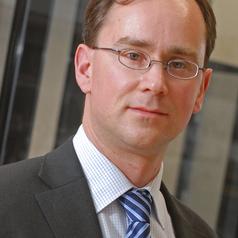
Fabian Battaglini
Professeur assistant en économie, EDC Paris Business School
Fabian Battaglini est professeur assistant en économie à l'EDC Paris Business School. Ses recherches portent sur l'économie politique historique et sur l'économie des conflits.
Less ![]()
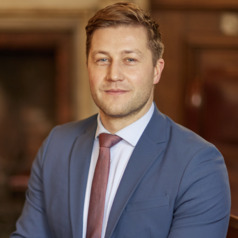
Fabian Braesemann
Departmental Research Lecturer in AI & Work, University of Oxford
Dr Fabian Braesemann is a Departmental Research Lecturer in AI & Work at the OII.
Fabian uses social data science methods to study the digital economy. Before Fabian became a Departmental Research Lecturer at the OII, he worked as a Research Fellow & Data Scientist in the Future of Real Estate Initiative at the Saïd Business School, University of Oxford, and as a Data Scientist at the OII on projects that applied data science to understand human development and labour markets.
His research has been published in leading academic journals and it was covered in national and international media. Fabian has been presenting the results and implications of his research in keynote talks at academic conferences as well as policy and industry events.
Having worked as a data scientist in industry and academia, Fabian has investigated social processes with a multitude of different online data sets in numerous domains. These experiences make him confident about the prospects and value of social data science as a key discipline in the 21st century – in academic research as well as in policymaking and industry.
Besides his role at Oxford University, he runs a social data startup company – DWG Datenwissenschaftliche Gesellschaft Berlin. The DWG aims to bridge academic knowledge generation and social data science innovation. The company applies data science to generate insights into the digital transformation of markets and it works mainly with the public sector and international development organisations.
Less ![]()

Fabian Cannizzo
Research Fellow, Monash University
Fabian has a PhD in Sociology from Monash University. His thesis explored the governance of academic workers in Australian universities and the career narratives that they develop through their work. He has published on the political economy of higher education, work/life balance in academia and the culture of creative workers. He has also conducted research into the broader production of culture and heritage in Melbourne, Australia. He is currently a member of The Australian Sociological Association (TASA) and co-convenor of the Work, Labour & Economy Thematic Group.
Less ![]()
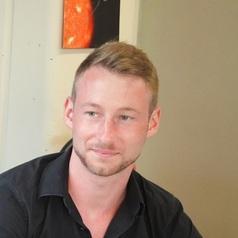
Fabian Klenner
Postdoctoral Scholar in Earth and Space Sciences, University of Washington
Fabian Klenner is a planetary scientist and astrobiologist at the University of Washington (UW). His research focus lies on the exploration of icy moons in the Solar System, in particular Saturn's moon Enceladus and Jupiter's moon Europa. He is interested in geochemical processes happening on these moons as well as the detection of potential life beyond Earth.
Fabian is an affiliate of NASA's Europa Clipper mission and involved in the planning and design of a potential future Enceladus mission. He is Co-Investigator of BioSigN, an ESA-led experiment to be performed on the International Space Station. Fabian's work is also relevant to the past Cassini mission and he is involved in ESA's CALICO, a potential mission to dwarf planet Ceres. He is member of various learned societies, including his co-leadership of the Ocean Worlds and Icy Moons working group of the German Astrobiology Society.
Before accepting his current position at UW in 2023, he was a Postdoctoral researcher at Freie Universität Berlin, the same university from where he received his Ph.D. in 2021. He studied Earth Sciences at Heidelberg University (M.Sc. and B.Sc.).
Less ![]()


Fabien Frenzel
Lecturer in the Political Economy of Organisation, University of Leicester
I joined the School of Management in February 2012. Between 2012-2014 I left Leicester to work at the University of Potsdam, Germany, on a two-year Marie Curie Postdoctoral Fellowship. The research grant enabled me to conduct a comparative case study of three global destinations of tourism in areas of urban poverty. I came back to Leicester on a full-time lectureship in September 2014 where I am teaching on the undergraduate, postgraduate, MBA and PhD programmes with a focus on qualitative research methods and the sociology of organisation.
Previously I was a lecturer at Bristol Business School, University of the West of England (UWE), where I taught on the tourism and enterprise undergraduate programmes and on the MBA. I am a Senior Research Associate of the University of Johannesburg and a Visiting Research Associate at the Centre for Tourism and Cultural Change (CTCC), Leeds Metropolitan University. I have an MSc in Political Sciences from Freie Universität Berlin and a PhD from Leeds Metropolitan University.
My research interests converge at the intersections of mobility, organisation and politics. In this context I consider the role of transnational mobilities, from activists to tourists, in the formation of a global social question with a focus on the way slums are becoming destinations of a range of better-off travellers, in solidarity and volunteer travel and in slum tourism. This is also the topic of most recent book ‚Slumming It‘ (Zed Books 2016).
In 2012 I received a Marie Curie Post Doctoral Fellowship from the EU for a two-year research project on slum tourism, conducted at the University of Potsdam, Germany. The project website is www.qualpot.eu. Prior to this I won an early career grant from the University of the West of England to study tourism in Rio de Janeiro’s favelas and to initiate the foundation of a slum tourism research network. I co-organised the first conference in this field of research in December 2010 at UWE. This led to the publication of a special issue on slum tourism in the journal tourism geographies and a book I edited on the same topic. In May 2014 I hosted the second slum tourism network conference in Potsdam and I am co-editor of two special issues emerging from the conference publications. More information on the slum tourism research network can be found on its webpage www.slumtourism.net
In my second empirical research field I study the ways in which social movements organise themselves in response to place and space with a particular interest in the organisational form of the protest camp. In 2013 I published a book on protest camps as an organisational form (with Zed books) in collaboration with Anna Feigenbaum (Bournemouth University) and Patrick McCurdy (Ottawa University). I have taken part in the foundation of the protest camp research network. In the framework of the network, I am currently co-editing a book on case studies of protest camps across the world (forthcoming with Policy Press in 2017). I am also one of the founders of the protest camp research collective.
I have previously worked in an ESRC research project on Alternative Media Organisation in the 'Global South' (RES-155-25-0029).
Earlier work includes the foundation in 2003 of a research think tank, the Institute of Nomadology (InNo) in Berlin.
Less ![]()

Fabien Medvecky
Associate Professor in Science Communication, Australian National University
Fabien a science communication academic with a background in philosophy (PhD) and economics (PG Dip). He brings these fields into his work on how knowledge, and especially scientific knowledge, is discussed, considered, and shaped in conversations between experts and non-experts. He is especially interested in questions about social epistemology and on the ethics of science communication.
Fabien has worked in Australia and New Zealand, and have collaborations all over the world. He is currently the Secretary of PCST, the global network for the Public Communication of Science and Technology, and from 2016 to 2018 was the president of the Science Communicators' Association of New Zealand.
Less ![]()

Fabien Nadou
Enseignant-chercheur en Développement Territorial et Economie régionale, EM Normandie,Laboratoire Métis, EM Normandie
Less ![]()
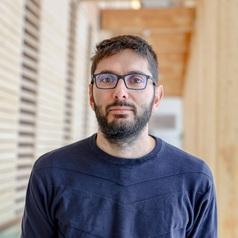
Fabio Gennaretti
Professeur en sciences forestière, Université du Québec en Abitibi-Témiscamingue (UQAT)
Fabio Gennaretti est professeur à l'Institut de recherche sur les forêts de l'UQAT (IRF) et membre du Groupe de Recherche en Écologie de la MRC-Abitibi (GREMA). Depuis 2022, il est aussi titulaire de la Chaire de Recherche du Canada en dendroécologie et dendroclimatologie. Son laboratoire étudie les changements climatiques et leurs impacts, ainsi que les processus écologiques et écophysiologiques en forêt boréale.
Less ![]()
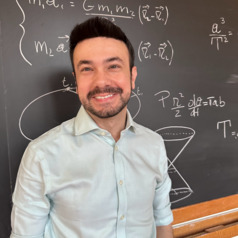
Fabio Pacucci
Astrophysicist, Smithsonian Institution
Fabio is an astrophysicist at the Center for Astrophysics | Harvard & Smithsonian in Cambridge (MA), and a Clay Fellow at the Smithsonian Astrophysical Observatory. His research focuses on "all things black holes," from the local ones to the farthest ever discovered, from the small to the super-massive ones. A large part of his research deals with the formation, cosmological evolution and observational signatures of the first population of black holes formed more than 13 billion years ago.
Fabio is a very active science educator and loves outreach! With TED Conferences, he is the science educator for 10+ TED-Ed videos, mostly about physics and astrophysics. He is also a writer for Scientific American.
Less ![]()
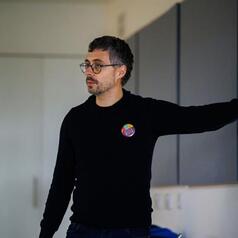
Fabio Silva
Senior Lecturer in Archaeological Modelling, Bournemouth University
I am Senior Lecturer in Archaeological Modelling at Bournemouth University and co-founder and co-editor of the Journal of Skyscape Archaeology. My research interest is how societies perceive and conceive their world(s) and used that to time and adjust social, productive and magico-religious behaviours, especially in prehistory.
My research interests steered me along two distinct yet complementary strands: archaeological modelling and skyscape archaeology.
The first strand involves the modelling and analysis of cultural- and environmental-dependent dispersal dynamics, especially across large spatial and temporal scales. Large-scale dispersals have been a staple of archaeological research from its inception (e.g. spread of early hominids out of Africa, spread of domesticated crops and animals). I am especially interested in exploring them through the recovery of their dynamics (modes and routes of dispersal) via statistical analysis of chronometric, material and palaeoenvironmental data. This requires lateral thinking with innovative computational approaches that, nevertheless, are acutely aware of the nature, uncertainties and other limitations of the available data.
The second strand focuses on more regional scales and explores the skyscape archaeology of late prehistoric monuments. Structures such as Stonehenge in Wiltshire and Newgrange in Ireland are famous for having had celestial alignments encoded into their architecture. There is much speculation surrounding their intent, purpose and meaning, with interpretations often blurring the lines between scholarship and fantasy. On this front, I am not so interested in identifying and collecting celestial alignments but in understanding how they can help us peek into the ontologies of past societies, i.e. into how they conceived the world and their place in it. This takes careful, robust and reflexive approaches to the archaeological record – both qualitative and quantitative – which I am keen to not only explore but also develop.
Less ![]()
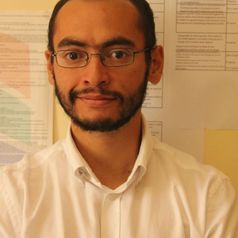
Fabio Andrés Díaz Pabón
African Centre of Excellence for Inequality Research (ACEIR), University of Cape Town
Research fellow on Sustainable Development and the African Agenda 2063, hosted by the African Centre of Excellence for Inequality Research (ACEIR) of the University of Cape Town. Honorary Research Associate at the Department of Political and International studies at Rhodes University in South Africa. I work at the intersection between theory and practice, and my research interests are related to politics, development, economics and inequality. In addition to my academic publications, some of writings have been published by Al Jazeera, Mail & Guardian, Time, The Conversation, Los Angeles Times, among others.
Less ![]()
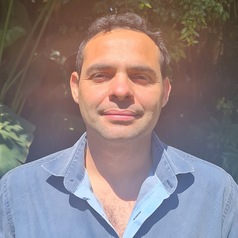
Fabio Mathias Correa
Associate Professor, University of the Free State
Prof Fabio is an Associate Professor at the University of the Free State. He obtained his Ph.D. in Statistics in 2012 at Universidade Federal de Lavras - Brazil. I'm a member of SACNASP and the South African Statistical Association (SASA). My current interests are structural equations, Bayesian models, machine learning, and genetic models.
Less ![]()
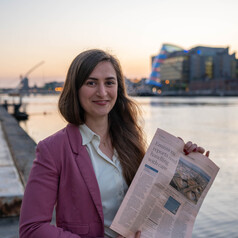
Fabiola Schneider
Assistant Professor, Dublin City University
Fabiola Schneider is Assistant Professor in Finance at the Dublin City University (DCU) Business School and co-lead at the GreenWatch initiative. She is Sherpa to the European Commission's Platform on Sustainable Finance. Her research interests include greenwashing in financial markets, corporate transitions, climate finance and risks and sustainability reporting with a special focus on emission disclosure. Fabiola is also passionate about promoting equality, diversity and inclusion.
Less ![]()
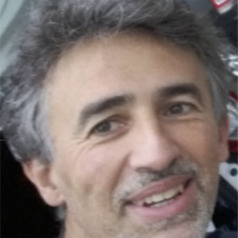
Fabrice De Poli
enseignant-chercheur en Etudes Italiennes (poésie, prose et cinéma de l'Italie - XIX-XXème s.), Université Savoie Mont Blanc
Fabrice De Poli est Maître de Conférences en Etudes italiennes au département LEA (Langues Etrangères Appliquées) de l’Université Savoie Mont Blanc. Sa recherche, portant sur la littérature (poésie et prose) dans l’Italie de l’ère contemporaine (de 1789 à nos jours) et, plus ponctuellement, le cinéma italien, se décline en trois axes principaux : « Les transfigurations de l’Histoire et de la politique », axe dans lequel il travaille sur le conditionnement d’une inspiration créatrice par son contexte historique (sociétal, politique et idéologique) ; « La condition moderne à l’ère de la sécularisation », où il analyse les répercussions de la sécularisation dans la création italienne ; « Filiations et intertextualité », axe de recherche centré sur la mise en lumière et l’analyse de filiations entre poètes italiens ou entre poètes français et italiens dans le but de mettre au jour le dialogue fécond, sur le plan artistique et moral, entre un poète et ses aînés.
Less ![]()
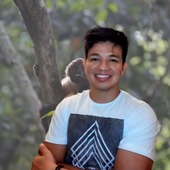

Fabrizio Carmignani
Professor, Griffith Business School, Griffith University
Current teaching areas
Macroeconomics, Quantitative methods
Research expertise
Economic growth and macroeconomics
The macroeconomics of natural resource abundance
Macroeconomic analysis of aid for health
Development economics
The economics of civil conflict and post-conflict countries
Panel models and systems of equations
Less ![]()
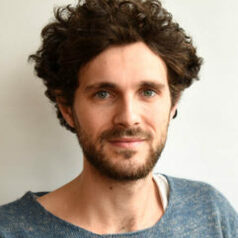
Fabrizio Santoro
Postdoctoral Fellow, International Centre for Tax and Development, Institute of Development Studies
Fabrizio is a Postdoctoral Fellow at IDS working with the International Centre for Tax and Development. He completed his doctorate in Economics at the University of Sussex.
He also works as an external consultant for the University of Sussex and the Danish Refugee Council. Prior to joining IDS, Fabrizio worked as a Research Associate at Innovations for Poverty Action in Myanmar, as a Trainee at the United Nations Economic and Social Commission for Asia and the Pacific in Bangkok, and with BRAC in Uganda.
He has field experience in Rwanda and Swaziland. His main area of work is taxation and public finance, with a strong focus on evaluation of public policy and data analysis.
Less ![]()
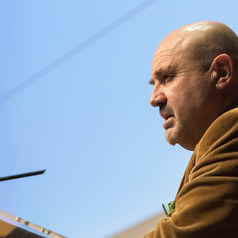
Fabrizio Schifano
Chair in Clinical Pharmacology and Therapeutics, University of Hertfordshire
Professor Schifano is one of the very few physicians with training and specialist qualifications in both psychiatry and clinical pharmacology and has contributed to the biomedical science as well as the clinical science of addiction. He has also made a significant contribution to several areas in addiction psychiatry and general psychiatry, including: stimulant synthetic drugs, mortality studies (Professor Schifano co-supervises and co-leads the National Programme on Substance Abuse Deaths (npSAD)), the internet and drugs. This is a new area of research and Professor Schifano is the Principal Investigator of the third consecutive EU Commission-funded, multi-centre Psychonaut/ReDNet research programme. Results from these studies have provided the only comprehensive and multilingual analysis of the information available online on psychoactive compounds to date.
Less ![]()
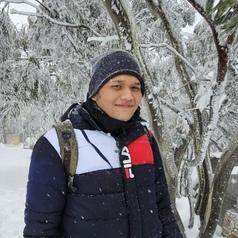
Fadhlil Rizki Muhammad
Graduate Researcher, The University of Melbourne
Fadhlil completed his BSc in Applied Meteorology at IPB University, Indonesia, where he investigated the impact of the Madden-Julian Oscillation on extreme rainfall and temperature events in Indonesia and the influence of Indian Ocean Dipole on the equatorial Kelvin and Mixed-Rossby gravity waves. He was a member of the climate team in the G4AW-Spiceup project, which aims to provide low-cost weather predictions for pepper farmers in Indonesia. He is currently a PhD student from the University of Melbourne. His research mainly focuses on the impacts on tropical rainfall and circulation due to intraseasonal variabilities such as Madden-Julian oscillation, boreal summer intraseasonal oscillation, and convectively coupled equatorial waves. His current research quantifies the impacts of equatorial waves on tropical Australian rainfall and their characteristics in the S2S models
Less ![]()
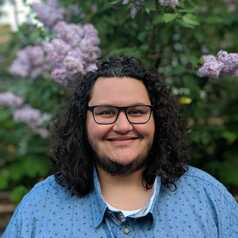
Fady Shanouda
Assistant Professor, Critical Disability Studies, Carleton University
I am a critical disability studies scholar who draws on feminist new materialism to examine disabled and mad students' experiences in higher education. My scholarly contributions lie at the theoretical and pedagogical intersections of disability, mad, and fat studies and include socio-historical examinations that surface the interconnections of colonialism, racism, ableism, sanism, and queer- and transphobia. I have published scholarly articles on disability-related issues in higher education, on Canadian disability history, and on community-based learning. I am an assistant professor at the Pauline Jewett Institute of Women's and Gender Studies at Carleton University. I conduct this research diversely-positioned as a disabled, fat, POC, immigrant and settler who is living, working and creating on the ancestral and traditional territories of the Algonquin nation.
Less ![]()
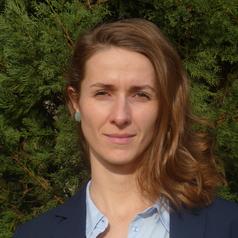
Fairley Le Moal
Postdoctoral Researcher in Sociology, Flinders University
Dr. Fairley Le Moal is a Researcher in Sociology, working in the College of Nursing and Health Sciences of Flinders University, and a member of the Centre Max Weber UMR5283 (France).
Fairley has defended her PhD in Sociology and Anthropology in October 2022, graduating from Flinders University and from the University Lumiere Lyon 2. Her thesis focuses on the work of ‘feeding the family’, in France and in Australia, and she adopted an ethnographic approach, visiting families in their homes for observations.
She investigate more particularly the practices and experiences of family mealtimes in middle and upper-class households, looking into food socialisations, family relationships, emotion management and power dynamics. Her results shed light on the work of everyday family mealtimes, and the contradictory imperatives family members face – particularly mothers – when it comes to eating together and maintaining health within the family, which end up reproducing gender inequalities at home.
Less ![]()

Faith Jeremiah
Lecturer in Business Management (Entrepreneurship and Innovation), Lincoln University, New Zealand
I am a social scientist exploring cognitive and behavioural sciences within the field of entrepreneurship and innovation. Thus my research focus sits within the interdisciplinary realms of psychological and physiological sciences. The driving force behind my exploration in this domain is a deep-rooted desire to instigate meaningful change. I am dedicated to achieving this by disrupting entrenched mindsets, cultivating innovative modes of thought, and ultimately reshaping behaviours. As I look ahead, my trajectory involves an ongoing investigation into the intricate interplay between human behaviour, innovative thinking, and the transformative power of emerging technologies which will undoubtedly influence the way we perceive, adapt, and evolve within the unfolding digital revolution.
Less ![]()
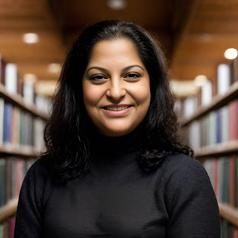
Faiza Jamil
Associate Professor of Education, Clemson University
Faiza M. Jamil (Ph.D., Educational Psychology-Applied Developmental Science, University of Virginia) is an associate professor in Education and Human Development and the founder of the Context of Learning and Development Lab. Her research follows two complementary strands: 1) understanding the underlying psychological processes – cognitive, social, and emotional – that influence teachers’ classroom behaviors and career decisions, and 2) understanding the ways in which teacher-child interactions influence children’s learning and development. More specifically, Dr. Jamil conducts research that leverages her expertise in rigorous quantitative methodologies and professional development to better understand and improve the educational experiences of teachers and students within these two broad strands, with a particular focus on issues of educational equity. Dr. Jamil teaches courses related to human development in the Clemson’s Learning Sciences Doctoral Program and Teacher Education Programs, to which she brings her own experiences as a K-12 teacher in three countries.
Less ![]()
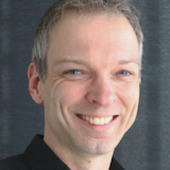
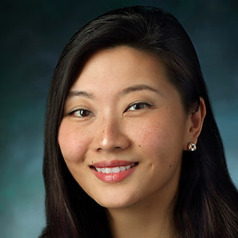
Fan Liang
Assistant Professor of Plastic and Reconstructive Surgery, Johns Hopkins University
Dr. Fan Liang is the medical director of the Johns Hopkins Center for Transgender and Gender Expansive Health.
Less ![]()
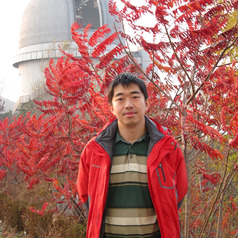
Fan Liu
Research Fellow, School of Physics and Astronomy, Monash University
My research focuses on the evolution and formation of stars and planets.
Less ![]()
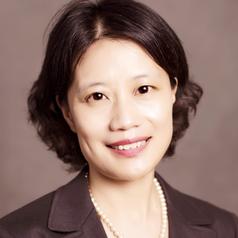
Fang Fang Zhang
Professor of Epidemiology, Tufts University
Dr. Fang Fang Zhang is a nutritional epidemiologist with expertise in assessing dietary intake patterns, trends, and disparities in the population, and conducting observational studies and clinical trials to investigate the role of nutrition in cancer prevention and control. She has led pioneering work that assessed dietary intake in adult survivors of childhood cancer and its associations with treatment exposure, chronic health conditions, and quality of life. Following her study that identified adult cancer survivors in the US have poor diet quality, she builds partnerships with key stakeholders in learning about the complex web of factors that influence the dietary intake patterns of cancer survivors.
Dr. Zhang is committed to translating scientific evidence into programs, practices, and policies. She has developed a web-based intervention program that helps parents transition family into healthy eating soon after the child completes active cancer treatment, and is working on food is medicine interventions that integrate food and nutrition into oncology care through prescription of medically tailored meals and nutrition counseling for vulnerable patients with lung cancer.
Dr. Zhang’s research interests also include quantifying preventable cancer burden associated with suboptimal diet, assessing the cost-effectiveness of population strategies to improve diet and reduce cancer burden and disparities in the US, and evaluating the health, environmental, economic, and social impact of sustainable diet. Dr. Zhang’s work has been highlighted in the NIH Director’s Blog and NIH Research Matters.
Dr. Zhang received her PhD with distinction in Epidemiology from Columbia University and MD from Fudan University Shanghai Medical College. She is a recipient of the Eileen O'Neil Citation for Excellence in Teaching and an inaugural recipient of the Miriam E. Nelson Tisch Faculty Fellow from Tufts University.
Less ![]()
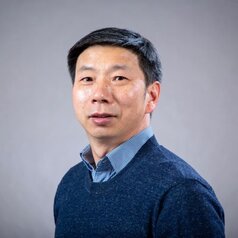
Fangqun Yu
Senior Researcher in Atmospheric Sciences, University at Albany, State University of New York
Dr. Yu holds a PhD in Atmospheric Sciences from the University of California at Los Angeles, achieved in 1998, following earlier studies in the same field and in Atmospheric Physics at Peking University and the Institute of Atmospheric Physics, China. Dr. Yu's scholarly work, highlighted through numerous publications and citations in various scientific discussions, underscores significant contributions to understanding atmospheric aerosols, their interaction with clouds and climate, and related health impacts. His professional trajectory includes extensive fundamental research and model development on atmospheric aerosol behavior, showcasing an in-depth engagement with climate change and air quality studies across multiple research institutions in the U.S. His research grants reflect a strong focus on delineating physical processes, developing state-of-the-art models, reducing uncertainties in climate change projections, and addressing emerging environmental issues.
Less ![]()
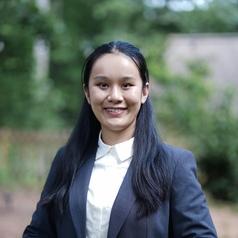
Fangzhou Wang
Assistant Professor of Criminology and Criminal Justice, University of Texas at Arlington
Wang's primary research focuses on comprehending the linguistic aspects involved in the operations of romance fraudsters. Additionally, She investigates the risk and protective factors associated with individuals who fall victim to romance fraud, aiming to enhance awareness and safeguard potential victims from harm in the future. She adopts an interdisciplinary approach, utilizing a comparative perspective. Wang's research interests encompass not only online romance scam but a wider range of online deceptions.
Less ![]()
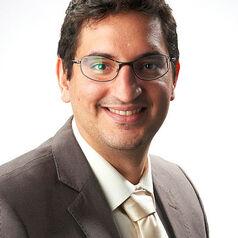
Fanis Tsoligkas
Associate professor in management, accounting, finance & law, University of Bath
Dr Fanis Tsoligkas is a Senior Lecturer in Accounting at the University of Bath. Prior to joining, Fanis has held posts at Queen Mary, University of London and prior joining academia has practised accountancy in Greece.
Fanis is part of the core research team of the Adam Smith Observatory of Corporate Reporting Practises which was established in January 2020. The main objective of the Observatory is to generate and promote innovative, practice-oriented, and academically rigorous research on contemporary issues and challenges facing corporate entities, professional bodies and policymakers. The findings of such research are communicated via refereed reports and in a timely fashion. The Observatory also organises conferences, seminars and workshops for disseminating the research findings to policy makers, practitioners and other academics.
His main research interests lie in the fields of financial reporting discretion, the recognition and valuation of intangible assets and the adoption of IFRS. Dr Tsoligkas’ research interests are also in the area of market-based accounting research including accounting-based anomalies and capital market consequences of accounting information. His research also addresses the effect of trading behaviours of corporate executives and directors.
Less ![]()
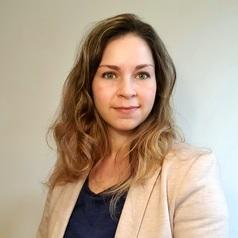
Fanni Toth
Postdoctoral Research Associate on POPBACK project , Loughborough University
Dr Fanni Toth is a Postdoctoral Research Associate at the Insititute for Media and Creative Industries (IMCI) at Loughborough University London. She is currently working on the project ‘Populist Backlash, Democratic Backsliding, and the Crisis of the Rule of Law in the European Union (POPBACK)’, focusing on the Hungarian case study. Fanni’s research interests concentrate on democratisation, political attitudes, political communication and populist authoritarianism, with a regional focus on Central and Eastern Europe.
Less ![]()

Fanny Christou
Chercheur spécialiste des migrations internationales et études sur le Moyen-Orient, Swedish Institute of International Affairs (UI)
Politiste de formation, Fanny Christou est diplômée de Sciences Po Toulouse (2013). Elle est aussi titulaire d'un Master Recherche en Géopolitique et Relations Internationales (Université de Toulouse, 2013) et d'un autre Master en Stratégies Culturelles Internationales (Université d'Albi, 2014). Après une expérience professionnelle à l’Organisation internationale pour les migrations, elle a obtenu son Doctorat en Géographie - codirigé entre l'Université de Poitiers (Migrinter) et l'Université Américaine de Beyrouth - en décembre 2017. Ses travaux de thèse portent sur la territorialisation de la mobilisation politique de la diaspora palestinienne en Suède, , avec un intérêt particulier sur les migrations palestiniennes de Jordanie, du Liban, de Syrie et des territoires occupés palestiniens vers l’Europe du Nord pour interroger ce que signifie « être Palestinien » aujourd’hui. Tout au long de son parcours doctoral, Fanny a reçu divers prix de recherche et distinctions (Institut des Hautes Etudes de Défense Nationale, Fondation de France, Fondation Poitiers Université).
Elle a par la suite pu s’intéresser à la diaspora palestinienne installée en Allemagne grâce à l’octroi d’une bourse post-doctorale de la Fondation Croix Rouge française entre 2018 et 2019. Elle a bénéficié, pour la conduite de ces travaux de recherche, d’un accueil scientifique au Centre for Advanced Middle Eastern Studies, Université de Lund, Suède, où elle a également travaillé sur deux projets de recherche inscrits dans le programme The Middle East in the Contemporary World MECW. À la suite d'un post-doc international à l'Université de Lund, dans le cadre d'un projet de recherche portant sur les migrations et le changement climatique au Soudan, Fanny est désormais chercheure fellow au Swedish Institute of International Affairs (Middle East and North Africa Programme) où elle mène un projet sur les diasporas palestiniennes et kurdes en Suède. Elle a également enseigné en France, en Suède et au Danemark divers sujets portant sur la géopolitique du Moyen-Orient. Fanny Christou est chercheure associée à Migrinter, Université de Poitiers, à l’Institut Convergences Migrations, France et au Centre arabe de recherches et d’études politiques de Paris (CAREP Paris).
Less ![]()

Fanny Fronton
Doctorante en Écologie halieutique et biologie moléculaire, Institut national de la recherche scientifique (INRS)
Étudiante au doctorat de biologie à l'INRS - AFSB dans les domaines de l'écologie halieutique et de biologie moléculaire. Mon sujet de recherche s'intitule "Biopsie liquide et approche omique pour le suivi de populations de téléostéens dans le golfe du Saint-Laurent". Je m'intéresse au développement de nouveaux biomarqueurs de l'état de santé des poissons qui soient sensibles, simples, pratiques, peu coûteux et minimalement invasif pour l'animal. Les espèces sur lesquelles je travaille sont toutes socio-économiquement importantes, mais les changements récents de l'environnement soulèvent des problèmatiques au niveau des pêcheries, puisque leur population est en diminution depuis plusieurs dizaines d'années. Pour ce faire, je m'inspire de l'étude du microbiome circulant, ou des différentes bactéries que l'on peut détecter dans le sang via leurs acides nucléiques. En effet, celui-ci est très sensibles et permet de détecter toutes sortes de pathologies ou de stress sur l'organisme chez l'humain, et j'essaye de l'adapter au téléostéens afin de mieux évaluer leur état de santé, puis par la suite mieux gérer la pêche sur ces espèces.
Less ![]()
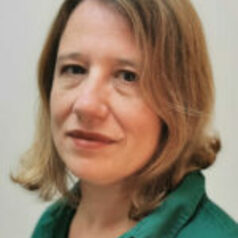
Fanny Jedlicki
Maîtresse de conférences de sociologie, Laboratoire Interdisciplinaire de Recherche en Innovations Sociétales (LIRIS), Université Rennes 2
Less ![]()
- Market Data

















